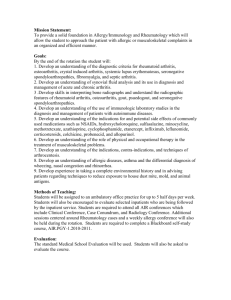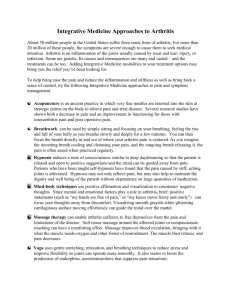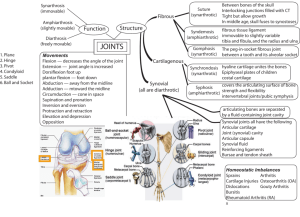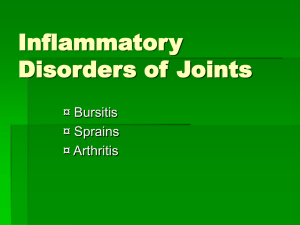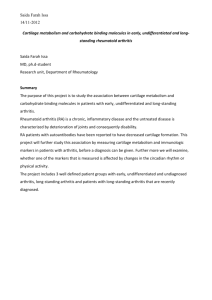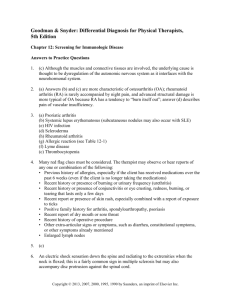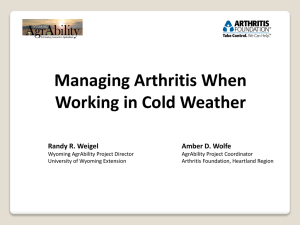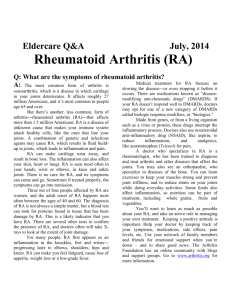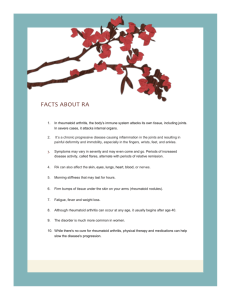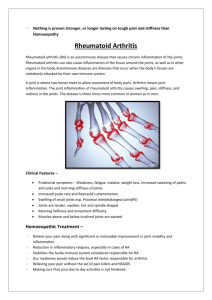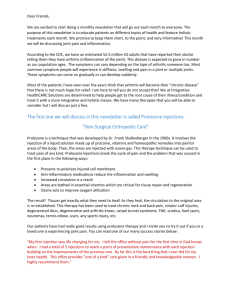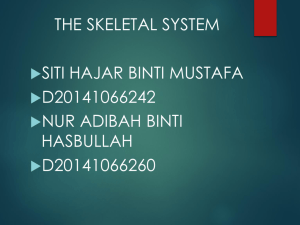and the Latin itismeaning " inflammation". The plural of arthritis is
advertisement
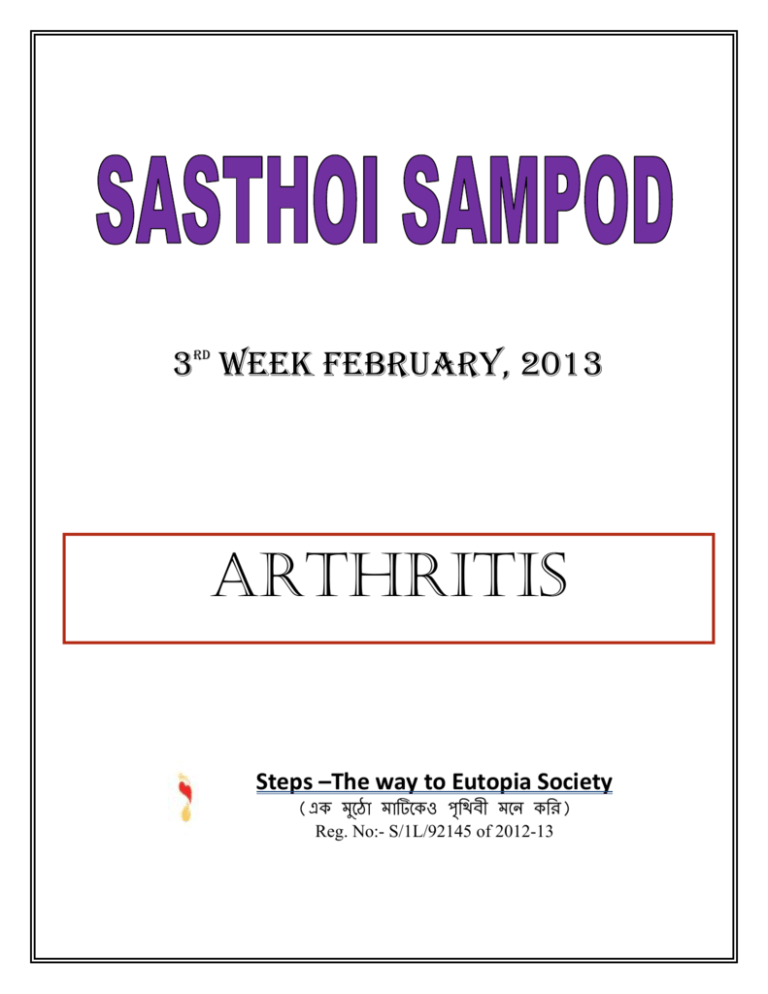
3 WEEK FEBRUARY, 2013 RD ARTHRITIS Steps –The way to Eutopia Society (এক মুঠ ো মোটিঠকও পৃথিবী মঠে কথি) Reg. No:- S/1L/92145 of 2012-13 What is Arthritis? The word arthritis comes from the Greekarthron meaning "joint" and the Latin itismeaning " inflammation". The plural of arthritis is arthritides. Arthritis affects the musculoskeletal system, specifically the joints. It is the main cause of disability among people over fifty-five years of age in industrialized countries. Arthritis is not a single disease - it is a term that covers over 100 medical conditions. Osteoarthritis (OA) is the most common form of arthritis and generally affects elderly patients. Some forms of arthritis can affect people at a very early age. Causes Arthritis? In order to better understand what is going on when a person suffers from some form of arthritis, let us look at how a joint works. Basically, a joint is where one bone moves on another bone. Ligaments hold the two bones together. The ligaments are like elastic bands, while they keep the bones in place your muscles relax or contract to make the joint move. Cartilage covers the bone surface to stop the two bones from rubbing directly against each other. The covering of cartilage allows the joint to work smoothly and painlessly. A capsule surrounds the joint. The space within the joint - the joint cavity - has synovial fluid. Synovial fluid nourishes the joint and the cartilage. The synovial fluid is produced by the synovium (synovial membrane) which lines the joint cavity. If you have arthritis something goes wrong with the joint(s). What goes wrong depends on what type of arthritis you have. It could be that the cartilage is wearing away, a lack of fluid, autoimmunity (your body attacking itself), infection, or a combination of many factors. Symptoms Arthritis causes joint pain, swelling, stiffness, and limited movement. Symptoms can include: Joint pain Joint swelling Reduced ability to move the joint Redness of the skin around a joint Stiffness, especially in the morning Warmth around a joint Treatment The goal of treatment is to reduce pain, improve function, and prevent further joint damage. The underlying cause cannot usually be cured. LIFESTYLE CHANGES Lifestyle changes are the preferred treatment for osteoarthritis and other types of joint inflammation. Exercise can help relieve stiffness, reduce pain and fatigue, and improve muscle and bone strength. Your health care team can help you design an exercise program that is best for you. Exercise programs may include: Low-impact aerobic activity (also called endurance exercise) Range of motion exercises for flexibility Strength training for muscle tone Physical therapy may be recommended. This might include: Heat or ice Splints or orthotics to support joints and help improve their position; this is often needed for rheumatoid arthritis Water therapy Massage Other recommendations: Get plenty of sleep. Sleeping 8 to 10 hours a night and taking naps during the day can help you recover from a flare-up more quickly and may even help prevent flare ups. Avoid staying in one position for too long. Avoid positions or movements that place extra stress on your sore joints. Change your home to make activities easier. For example, install grab bars in the shower, the tub, and near the toilet. Try stress-reducing activities, such as meditation, yoga, or tai chi. Eat a healthy diet full of fruits and vegetables, which contain important vitamins and minerals, especially vitamin E. Eat foods rich in omega-3 fatty acids, such as cold water fish (salmon, mackerel, and herring), flaxseed, rapeseed (canola) oil, soybeans, soybean oil, pumpkin seeds, and walnuts. Apply capsaicin cream over your painful joints. You may feel improvement after applying the cream for 3-7 days. Lose weight, if you are overweight. Weight loss can greatly improve joint pain in the legs and feet. 16, NAPIT PARA ROAD, RAJPUR, P.O. - RAJRUR, DIST-24PGS(S), KOLKATA – 700 149 WEBSITE: Phone No.- 9830367510, 7278959145 E-MAIL ID – steps_ WWW.STEPS-WE.ORG we@yahoo.com
